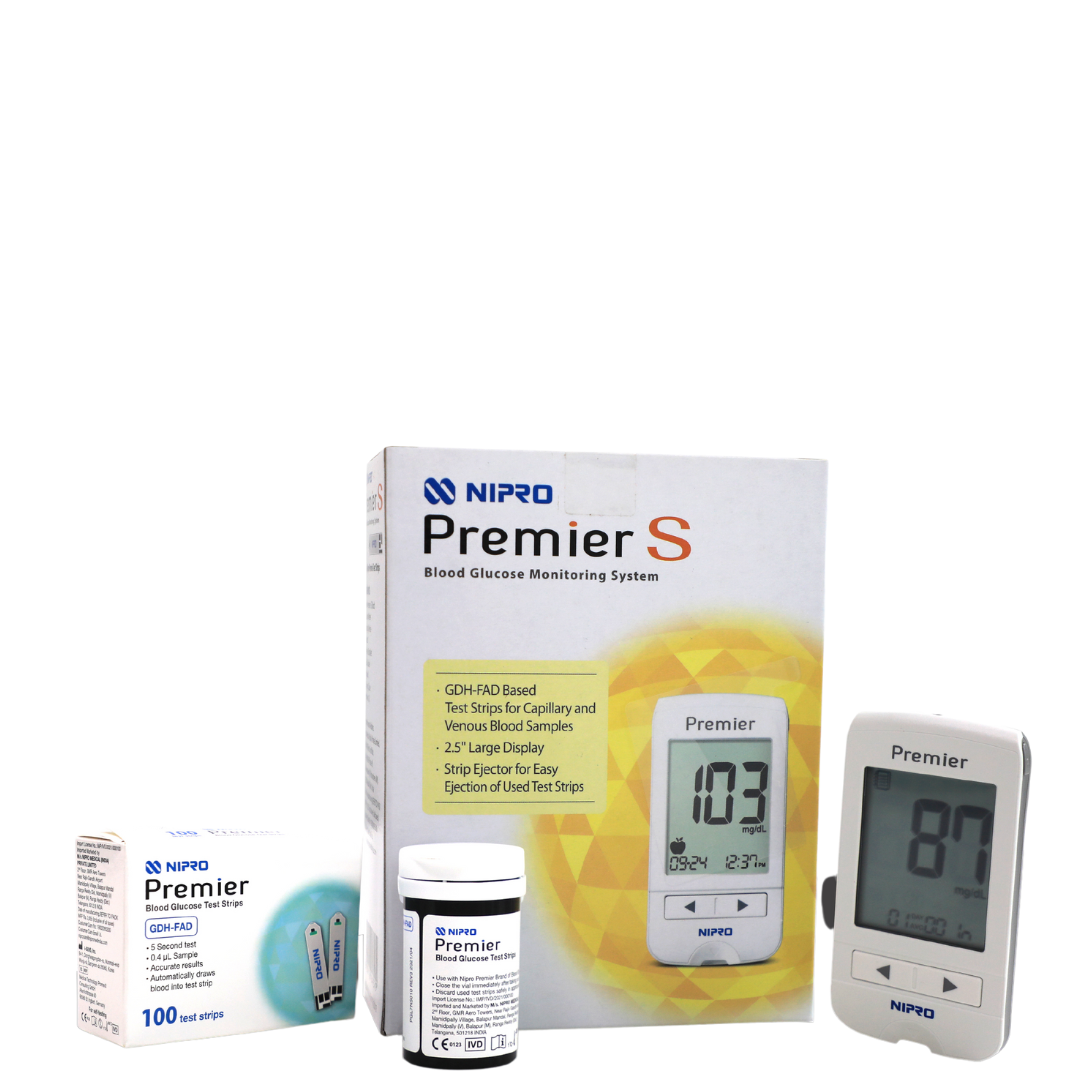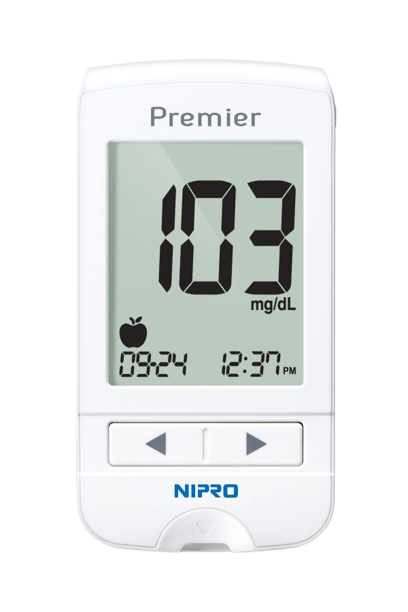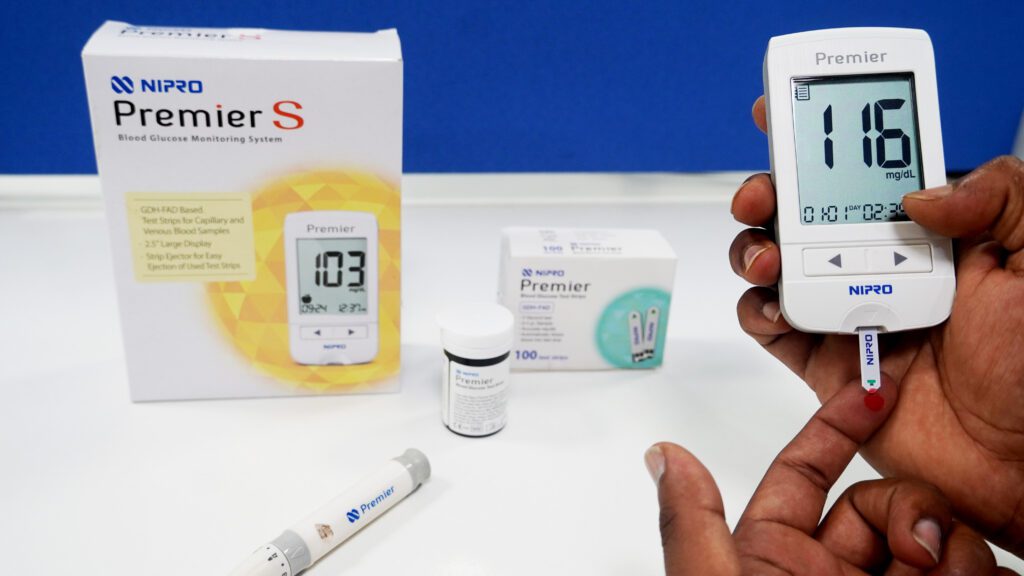We assist you in managing your diabetes effectively and leading a healthier, happier life. We understand that living with diabetes can present unique challenges, but with the right knowledge, support, and resources, you can take control of your condition and achieve a better quality of life.
What is Diabetes?
Diabetes is a chronic metabolic disorder that affects the way your body regulates blood sugar (glucose). It occurs when your body either doesn’t produce enough insulin or cannot effectively use the insulin it produces. Insulin is a hormone that helps regulate blood sugar levels, allowing cells to use glucose for energy. Without proper insulin function, blood sugar levels can rise, leading to various health complications.
In other words; when we eat carbohydrates, our bodies break them down into glucose, which is then released into our bloodstream. Glucose is our principle source of energy, but to free the energy, glucose must be processed within our cells. Insulin acts as the key, allowing glucose to enter our cells. But when the body cannot use insulin properly (Type 2 diabetes), or we do not produce enough insulin (Type 2 diabetes), or we do not produce any insulin (Type 1 diabetes), there will be an overabundance of glucose in the blood. Therefore, our body will need help in regulating blood glucose levels.
Types of Diabetes:
Type 2 Diabetes
This is the most common form of diabetes. It usually occurs in adulthood but is increasingly being diagnosed in children and adolescents. Type 2 diabetes is often associated with lifestyle factors such as obesity, physical inactivity, and poor diet. It can often be managed through lifestyle changes, oral medications, and, in some cases, insulin therapy.
Gestational Diabetes
This type of diabetes develops during pregnancy and usually resolves after delivery. However, it requires careful monitoring and management to ensure the health of both the mother and the baby.

Recognizing the Signs: Common Symptoms of Diabetes
Recognizing the symptoms of diabetes is important for early detection and prompt medical attention. The symptoms may vary depending on the type of diabetes and individual factors. Here are common symptoms associated with diabetes.
Excessive Thirst
The frequent urination caused by diabetes can lead to dehydration, triggering an increased thirst sensation.
Unexplained Weight Loss
Sudden weight loss without changes in diet or physical activity can be a sign of diabetes. In type 1 diabetes, weight loss occurs as the body breaks down muscle and fat for energy due to a lack of insulin. In type 2 diabetes, the body may not effectively utilize insulin, causing weight loss.
Increased Hunger
Despite eating regular meals, individuals with diabetes may experience persistent hunger. This is because the body's cells may not be receiving enough glucose for energy.
Fatigue and Weakness
Feeling tired, weak, or exhausted, even after getting adequate rest, can be a symptom of diabetes. The body's inability to utilize glucose effectively can lead to a lack of energy.
Blurred Vision
High blood sugar levels can affect the fluid balance in the eyes, causing temporary changes in vision. Blurriness or difficulty focusing may occur.
Slow Wound Healing
Diabetes can impair the body's ability to heal wounds. Cuts, sores, or infections may take longer to heal than usual.
Recurrent Infections
Individuals with diabetes may be more prone to infections, particularly yeast infections (such as thrush) in the mouth or genital area. Frequent urinary tract infections or skin infections are also possible.
Numbness and Tingling
Prolonged high blood sugar levels can damage nerves, leading to symptoms of numbness, tingling, or a "pins and needles" sensation, primarily in the hands and feet (peripheral neuropathy).
It’s important to note that some individuals with type 2 diabetes may not experience noticeable symptoms initially or may mistake them for common ailments. Regular check-ups and blood sugar monitoring are vital for early detection and proper management of diabetes.
If you are experiencing any of these symptoms or have concerns about your health, it is recommended to consult with a healthcare professional for a proper diagnosis and appropriate treatment.
Nearly 52% of Indians aren’t aware that they are suffering from high blood sugar. India has 65 M diabetics — an increase of nearly 2 million in just one year. By 2030, India’s diabetes numbers are expected to cross the 100 million mark.
“Uncontrolled diabetes leads to Kidney Failure”
Diabetes is manageable and you can live a full life
Diabetes is largely preventable or manageable through lifestyle modifications and proper medical care. Some preventive measures and management strategies include:
Regular Exercise
Engaging in regular physical activity, such as walking, jogging, or cycling, helps control blood sugar levels.
Weight Management
Maintaining a healthy weight reduces the risk of developing diabetes.
Regular Screening
Regular health check-ups and screenings are essential for early detection and timely management of diabetes. e. Medication and Insulin: For individuals with diabetes, proper medication, insulin therapy, or oral hypoglycemic agents may be prescribed to control blood sugar levels.

Diabetes is a significant health challenge in India, with a high prevalence and associated complications. However, with awareness, lifestyle modifications, and effective management, it is possible to prevent or control diabetes effectively. By implementing preventive measures and providing accessible healthcare, we can collectively work towards reducing the burden of diabetes in India and improving the overall health and well-being.
How Nipro can help you manage Diabetes?

Nipro has witnessed inspiring examples of patients achieving their goals, despite their diabetes.
Our unwavering dedication lies in streamlining your life with the Nipro Premier S Blood Glucose Monitoring System, encompassing precise and user-friendly products, backed by our exceptional customer service, ensuring your utmost satisfaction with our products and assistance.
Discover how the Nipro Premier S Blood Glucose Monitoring System can aid you in effectively managing diabetes.
The Nipro Premier S Blood Glucose Monitoring System measures blood glucose quickly and accurately. It automatically absorbs the small blood sample applied to the narrow edge of the strip. It is used for the quantitative measurement of the glucose level I the capillary whole blood as an aid in monitoring diabetes management effectively at home or clinic. It is designed to minimize code-related error in monitoring by using the no-coding function.

Uncompromised Accuracy
- Plasma calibrated Latest ISO15197 2013.
- Auto coding – Removes batch-to-batch variance.
- Free from the interference of 32 substances used in hospitals.
- Meter designed for hospital use – same is available for patients- Same accuracy offered.
- Cheaper meters are with test strip enzyme Glucose oxidase –GO – not recommended in critical patients: Premier has GDH as strip enzyme Can be used in Paediatrics –haematocrit as low as 15%.


Safe and Convenient for users
- Unique strip ejector button at backside – safe for nurses and users.
- Long Strip Expiry of 18 months – even after opening vial.
- Ideal for common Type 2 Diabetes patients (do testing max twice a month).
- 50s pack is not wasted because of 18 months open expiry.
- Low strip cost of routine packs of 10s,25s.


